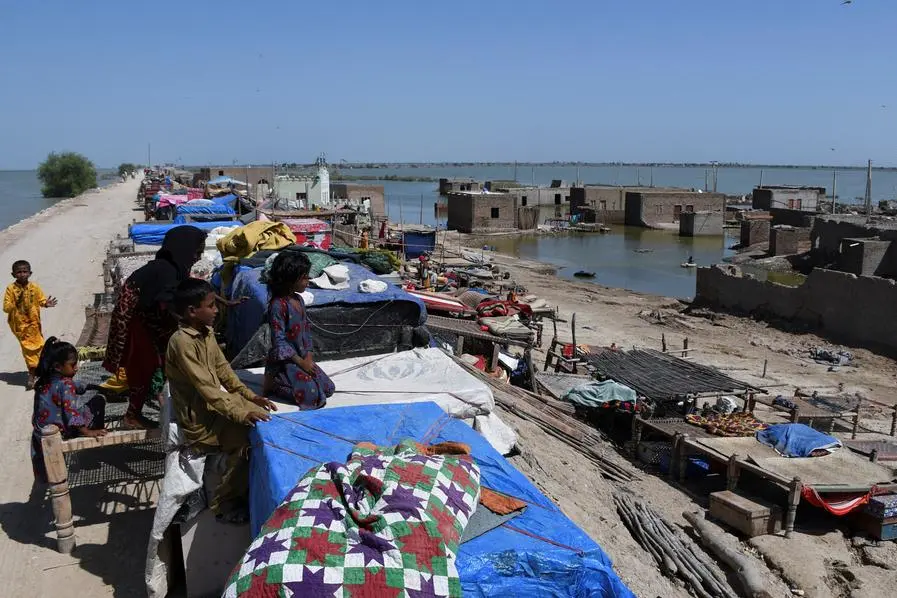PHOTO
Pakistan's bonds slumped to just half their face value on Friday, after the Financial Times said a United Nations development agency was urging the cash-strapped South Asian nation to restructure its debt.
Devastating floods engulfed large swathes of the country this month, affecting 33 million people, causing damage estimated at $30 billion, and killing more than 1,500, fanning fears that Pakistan will not meet its debts.
A memorandum the United Nations Development Programme is set to hand Pakistan's government this week says its creditors should consider debt relief in the wake of the floods, according to the Financial Times.
The memorandum further proposed debt restructuring or swaps, in which creditors would let go of repayments in exchange for Pakistan's agreement to invest in climate change-resilient infrastructure, the paper said.
The foreign office in Islamabad did not immediately respond to a Reuters request for comment on the memorandum. The finance and information ministers could not be immediately reached for comment.
A UNDP spokesperson in Pakistan did not respond to a request for comment.
Friday's signals strengthened fears of a default, hammering Pakistan's international government debt.
One of the main sovereign bonds due for repayment in 2024 slumped more than 9 cents to about 50 cents on the dollar , while another due in 2027 fell to about 45 cents..
Prime Minister Shehbaz Sharif appealed to the world and rich nations for immediate debt relief, saying what had been done was commendable, but adding, "It's far from meeting our needs."
In an interview on Friday, Sharif told Bloomberg TV in New York that Pakistan had taken up the debt relief issue with UN Secretary General Antonio Guterres and world leaders.
"We have spoken to European leaders and other leaders to help us in Paris club, to get us a moratorium," he said, referring to rich nation creditors.
The country of 220 million would not be able to stand on its feet, Sharif added, "unless we get substantial relief".
He said Pakistan would also seek relief from long-time ally China, to which it owes about 30% of its external debt.
Both the government and Guterres have blamed the flooding on climate change.
(Reporting by Marc Jones in London, Jyoti Narayan in Bengaluru and Asif Shahzad in Islamabad; Writing by Gibran Peshimam; Editing by Sam Holmes and Clarence Fernandez)





















